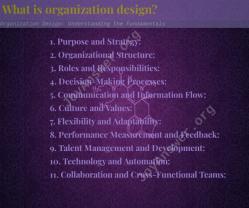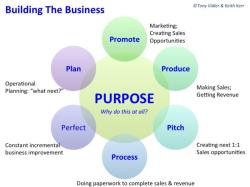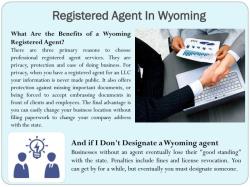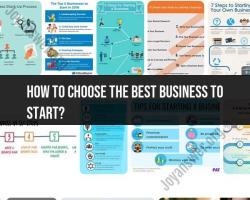Do you really need to hire customs broker?
Whether you need to hire a customs broker depends on various factors related to your business, the nature of your international trade activities, and the specific requirements of the countries involved. Here are key considerations to help you assess the need for a customs broker:
**1. Nature and Scale of International Trade:
- Volume and Frequency: If your business engages in frequent and substantial international trade activities, involving a large volume of shipments, a customs broker can help manage the complexities associated with customs clearance.
**2. Complexity of Customs Procedures:
- Specialized Goods: If you deal with specialized goods or products subject to complex customs regulations, a customs broker's expertise can ensure proper classification, valuation, and compliance with specific requirements.
**3. Global Market Expansion:
- Entering New Markets: If your business is expanding into new international markets, where customs procedures and regulations may be unfamiliar, a customs broker can provide valuable guidance and support.
**4. Regulatory Compliance:
- Ensuring Compliance: Customs regulations are intricate and subject to frequent changes. If you want to ensure strict compliance with the latest regulations and avoid penalties or delays, a customs broker's knowledge is invaluable.
**5. Time Sensitivity:
- Time-Effective Clearances: If your shipments require quick and efficient customs clearance to meet tight deadlines, a customs broker's experience in navigating the clearance process can be crucial.
**6. Resource Availability:
- In-House Expertise: Assess whether you have in-house expertise to handle customs documentation, classification, and compliance. If your team lacks this expertise, outsourcing to a customs broker can be a practical solution.
**7. Risk Mitigation:
- Minimizing Risks: Customs brokers play a role in risk mitigation by ensuring compliance with security measures and reducing the likelihood of customs-related issues that could disrupt your supply chain.
**8. Cost Considerations:
- Cost-Benefit Analysis: While hiring a customs broker involves costs, consider the potential benefits in terms of time saved, reduced risk of errors, and the avoidance of penalties. Conduct a cost-benefit analysis to determine if the investment is justified.
**9. Specialized Knowledge:
- Industry-specific Requirements: If your business operates in an industry with unique customs requirements, such as pharmaceuticals, chemicals, or technology, a customs broker with specialized knowledge in that industry can be essential.
**10. Preferential Trade Agreements:
- Leveraging Agreements: If your business can benefit from preferential trade agreements or duty drawback programs, a customs broker can help you navigate these processes to maximize cost savings.
**11. Legal Liability:
- Liability Concerns: Customs compliance is associated with legal responsibilities. If you're concerned about potential legal liabilities associated with customs documentation and procedures, a customs broker can help mitigate these risks.
**12. Supply Chain Integration:
- Integrated Services: If you value an integrated approach to your supply chain, where customs clearance is seamlessly coordinated with other logistics activities, working with a customs broker who collaborates with freight forwarders may be beneficial.
In conclusion, the decision to hire a customs broker depends on the specific needs and circumstances of your business. Conduct a thorough evaluation of your international trade activities, regulatory requirements, and internal capabilities to determine whether the expertise and support of a customs broker would be advantageous.
Navigating customs procedures: Do you really need to hire a customs broker?
Whether or not you need to hire a customs broker depends on a number of factors, including the complexity of your shipments, your in-house expertise, and your risk tolerance.
If you are importing or exporting complex or highly regulated goods, such as pharmaceuticals, food, or chemicals, it is highly recommended to hire a customs broker. Customs brokers have the expertise and experience to help you navigate the complex customs clearance process and ensure that your shipments meet all applicable requirements.
If you do not have in-house expertise in customs clearance, it is also wise to hire a customs broker. Customs brokers can help you to avoid costly mistakes and ensure that your shipments are cleared through customs efficiently and accurately.
Finally, if you are risk-averse, hiring a customs broker can be a wise investment. Customs brokers can help you to reduce the risk of delays, penalties, and other problems.
Examining the role and benefits of customs brokers in international trade
Customs brokers play a vital role in international trade by helping businesses to import and export goods efficiently and compliantly. Customs brokers provide a wide range of services, including:
- Classification and valuation: Customs brokers help businesses to classify their goods correctly and determine their value for customs purposes.
- Documentation preparation: Customs brokers prepare and submit all required customs documentation, including commercial invoices, packing lists, and certificates of origin.
- Customs clearance: Customs brokers work with customs authorities to clear shipments through customs and ensure that they are released to the importer or exporter in a timely manner.
- Compliance consulting: Customs brokers can provide businesses with advice on customs compliance and help them to develop and implement compliance programs.
By hiring a customs broker, businesses can benefit in a number of ways, including:
- Reduced risk of delays and penalties: Customs brokers can help businesses to avoid costly delays and penalties by ensuring that their shipments meet all applicable requirements.
- Improved efficiency: Customs brokers can streamline the customs clearance process and save businesses time and money.
- Enhanced compliance: Customs brokers can help businesses to comply with all applicable customs regulations and requirements.
- Peace of mind: Customs brokers can act as advocates for businesses with customs authorities and help them to resolve any issues that may arise.
Tips for businesses in deciding whether to engage a customs broker for their shipments
Here are some tips for businesses in deciding whether to engage a customs broker for their shipments:
- Consider the complexity of your shipments: If you are importing or exporting complex or highly regulated goods, it is highly recommended to hire a customs broker.
- Evaluate your in-house expertise: If you do not have in-house expertise in customs clearance, it is also wise to hire a customs broker.
- Weigh the costs and benefits: Hiring a customs broker can be an investment, but it is often worth the cost in terms of saved time, money, and reduced risk.
If you are unsure whether or not you need to hire a customs broker, it is a good idea to consult with a customs broker to discuss your specific needs and requirements. A customs broker can provide you with a free consultation and help you to make the best decision for your business.













